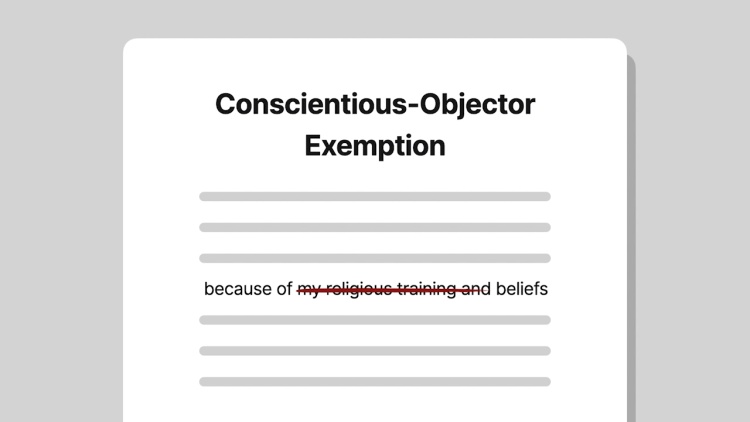Welsh v. United States
United States Supreme Court
398 U.S. 333 (1970)
- Written by David Schleider, JD
Facts
Section 6(j) of the Universal Military Training and Service Act provides that no individual who is opposed to participating in war because of his or her religious beliefs can be compelled to do so. While this exemption includes religious beliefs, § 6(j) does not exempt individuals who have a philosophical or moral opposition to war. Elliott Welsh (plaintiff) applied for a conscientious-objector exemption under § 6(j). However, Welsh refused to sign a required statement that he was opposed to participating in a war due to his religious beliefs, because Welsh did not want to affirm or deny a belief in God. Welsh did state that he had a conscientious objection to participating in a war in which people were killed, because he believed the taking of any life to be wrong. Welsh also stated that he would prefer to go to jail than serve in the army. Welsh was convicted and sentenced to imprisonment. The court of appeals affirmed the conviction, and the United States Supreme Court granted certiorari.
Rule of Law
Issue
Holding and Reasoning (Black, J.)
Concurrence (Harlan, J.)
Dissent (White, J.)
What to do next…
Here's why 899,000 law students have relied on our case briefs:
- Written by law professors and practitioners, not other law students. 47,000 briefs, keyed to 994 casebooks. Top-notch customer support.
- The right amount of information, includes the facts, issues, rule of law, holding and reasoning, and any concurrences and dissents.
- Access in your classes, works on your mobile and tablet. Massive library of related video lessons and high quality multiple-choice questions.
- Easy to use, uniform format for every case brief. Written in plain English, not in legalese. Our briefs summarize and simplify; they don’t just repeat the court’s language.





